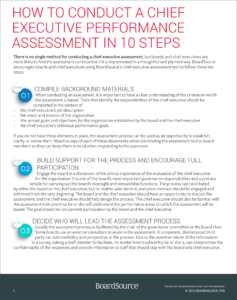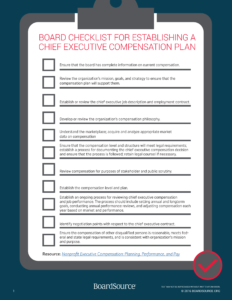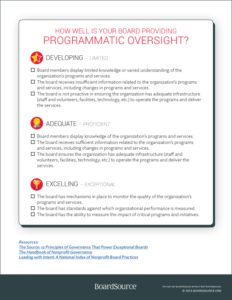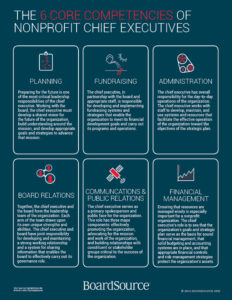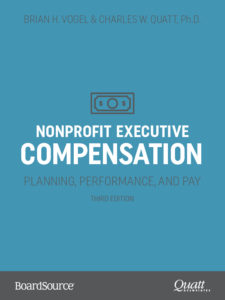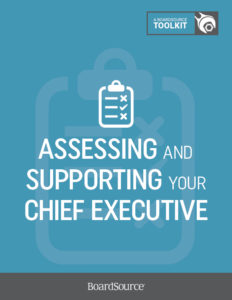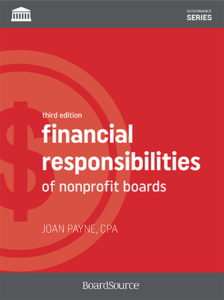Executive Evaluation and Compensation
Leading a nonprofit organization is a tremendous responsibility, both for boards and executives. Boards that don’t pay attention to executive evaluation and compensation are opening the organization up to serious risk.
Celebrating accomplishments and sharing honest and candid feedback about opportunities for growth is essential to the success of the executive and the organization. Similarly, ensuring that the organization is adequately — but not excessively — compensating the executive is critical to leadership sustainability.
Boards that don’t pay attention to executive evaluation and compensation are opening the organization up to serious risk. One doesn’t have to look far to find evidence of public officials or the media questioning the appropriateness of a nonprofit executive’s compensation. Boards that don’t manage their review processes well are exposed.
To ensure that boards are setting clear expectations for executive performance and doing their due diligence on executive compensation, BoardSource recommends the following:
- A formal, written review of performance each and every year. This does two things: It gives the executive the opportunity to report on his or her progress against goals, and it invites each board member to reflect on the executive’s overall performance. BoardSource also highly recommends that input from the executive’s direct reports be included as a part of the assessment, to ensure that the board has a strong understanding of the executive’s leadership within the organization, which is something that can be difficult for the board to assess without that input.
- An annual goal-setting process. As a part of the review process, the executive and the board should discuss and formalize goals for performance for the next year. These goals should be rooted in organizational performance against strategic goals, as well as the overall leadership of the executive.
- Regular review of compensation. While some organizations may not review the executive compensation package on an annual basis, it’s important that this be done at least every few years, and that the board and executive have a shared understanding of the frequency and process for this review. This review process and frequency may be outlined as a part of the executive’s employment contract, if applicable, or simply as a conversation between the board and the executive.
- Use of external salary benchmarks. It’s essential that boards have an understanding of the market as they make decisions on compensation. There are a number of resources available, including GuideStar’s compensation report, that enable boards to access information about executive compensation at organizations of similar size, scope, and geography. Some boards engage a compensation consultant to help conduct a more sophisticated scan of salaries, a practice that may be especially important if the organization feels that it is at risk of accusations of excessive compensation.
- Full board approval of the compensation package. While it’s likely that the work of researching and recommending the compensation package will be delegated to a committee, it’s important that the full board be informed of the recommendation and have an opportunity to discuss and vote on it. This ensures that the decision has the benefit of the full board’s perspectives, rather than a small and potentially insular group.
